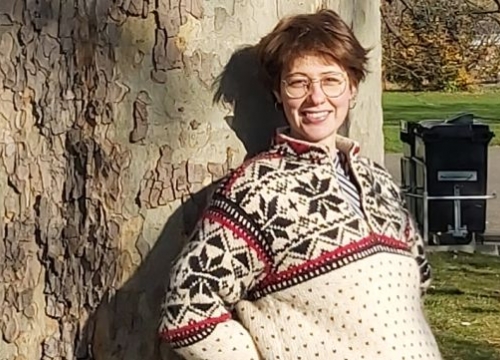MAS in Transitional Justice, Human Rights and the Rule of Law: What our Students Say
8 February 2021
In this interview, Hannah-Milena Elias, currently enrolled in our MAS in Transitional Justice, Human Rights and the Rule of Law (MTJ), tells about the programme and life in Geneva.
About Me
My name is Hannah-Milena and I was born in Germany, where I recently graduated with a Bachelor of Governance and Public Policy from the University of Passau. Over the course of the past six years, I have been active in the field of refugee rights and sea rescue in my community and nationally. Separately, I have worked and volunteered in the Colombian context on the questions of protection of human rights defenders and former child soldiers.
In my free time, I enjoy preparing different spreads and baking all kinds of cakes. If the weather allows it, I love cycling around the beautiful Geneva countryside.
Why did you choose the MTJ at the Geneva Academy?
Having grown up in Germany, I could see what role the country plays on the international scene, both today and in the past – between humanitarian aid and weapon production and exportation. Putting economic interests often above everything else is not limited to Germany and makes a human rights-based justice system all the more relevant today.
What are you particularly enjoying about this programme?
I really enjoy the open teaching environment and in particular the dedication of professors to create spaces for mutual learning, as well as their willingness to provide additional discussion sessions. Moreover, the interaction with such a diverse and interesting student body makes this experience priceless.
Would you Recommend it?
Yes! Having the opportunity to learn and hear from exceptional professors and young activists and academics alike gives rise to questions and self-reflections that one is usually not confronted with. Challenging one’s own conceptions and believes is, in my opinion, an essential part of engaging in the human rights field and should be a never-ending process. For me, this process has continued here at the Geneva Academy.
What are you planning to do next?
The current pandemic leaves many open questions for the time after graduation. However, I plan to continue working in the field of refugee rights, focusing on the obligations of European states, and stay closely connected to my on-going activism. And maybe Geneva will keep me for a little bit longer.
Why did you choose to be photographed in front of a tree by the lakeside?
Big, old trees always make me remember how deeply rooted we are in our societies and how much we depend on every aspect of it to make a change. Sometimes we might think we stand alone, as the trees on the shore of Lac Leman, but we should not forget that there are numerous factors that constantly help us grow and remind us of our interrelation to other living beings and nature.









